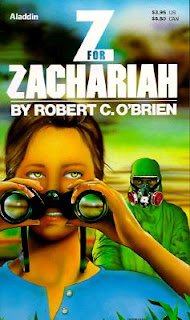Paying Your Debts to Keep the Wolf Away: Naomi Novik's Spinning Silver
A year and a half ago, I read and fell in love with Naomi Novik's Uprooted, a mostly new fairy tale for adults that draws inspiration from Novik's Eastern European heritage and my own favorite fairy tale, "Beauty and the Beast."
Last year, Novik released a sister book, Spinning Silver, and I finally got around to reading it.
Spinning Silver does not take place in the same universe as Uprooted, but it feels very similar (magic systems aside). The narration is nuanced and varied; each of the ultimately six narrators has their own voice and diction (the audiobook is spectacularly performed by Lisa Flanagan).
The story is openly a "Rumpelstiltskin" retelling; Miryem's opening narration brings the story to the forefront and sets it in opposition to her own. The story about the miller's daughter, she tells us, is one that people began to tell to cast the moneylender (a Jew) in a demonic light in order to get out of their debts. Miryem knows the prejudices against her people, and feels them all the more because her father is the local moneylender, and he is too gentle to demand repayment, even in the face of a life-threatening illness besetting his wife.
But Miryem refuses to lose her mother because their neighbors won't pay their debts, so she takes up her father's work. It turns out she's really quite good at it, though her parents caution her about hardening her heart against those she collects from.
Eventually Miryem's success grows to the point that she boasts she can turn silver into gold--and unfortunately for Miryem, the king of the Staryk (a race of icy fey who raid the villages in winter) hears her and seeks her services. If she fails, he will kill her.
Along the way, Miryem's story intertwines with those of Wanda (whose father is in debt to Miryem's family) and Irina (the daughter of a local duke with political aspirations). The Rumpelstiltskin story is reworked multiple times from different angles. Miryem becomes the Rumpelstiltskin character to Wanda's family, but then the miller's daughter when the Staryk overhears her boast. Irina is likened to the miller's daughter who borrows jewels from the moneylender. There are debts and contracts, some paid for good and some for ill, like the Tsar Mirnatius's contract inherited from his mother.
Despite the tension between Jewish and (ostensibly) Christian characters, religion plays a small role in the story. Elements of the Jewish faith become more important to Miryem at times in the story, and a Jewish blessing is found to have power in the right circumstances.
The truly astounding aspect of this book is the level of worldbuilding and interconnectedness Novik achieves with her storytelling. The Staryk are developed from bogeymen to a civilization; rumors become vital to the plot; small acts of kindness are paid forward. The magic is intriguing and all the more precious for its rarity; unlike Uprooted, Spinning Silver doesn't treat us to any wizard schools or fraternities.
At times frightening and philosophical, Spinning Silver is always compelling. It is the story of everyday woman and men caught up in extraordinary circumstances, sometimes mundane and sometimes otherworldly. They are faced with choices that seem small but have far-reaching consequences. It is a story of how one life can affect many, and how many lives together can build or break a community. Though it is not "the" moral of the story, a large part of the book's moral and philosophical view can be summed by this passage from Miryem's parents:
Last year, Novik released a sister book, Spinning Silver, and I finally got around to reading it.
Spinning Silver does not take place in the same universe as Uprooted, but it feels very similar (magic systems aside). The narration is nuanced and varied; each of the ultimately six narrators has their own voice and diction (the audiobook is spectacularly performed by Lisa Flanagan).
The story is openly a "Rumpelstiltskin" retelling; Miryem's opening narration brings the story to the forefront and sets it in opposition to her own. The story about the miller's daughter, she tells us, is one that people began to tell to cast the moneylender (a Jew) in a demonic light in order to get out of their debts. Miryem knows the prejudices against her people, and feels them all the more because her father is the local moneylender, and he is too gentle to demand repayment, even in the face of a life-threatening illness besetting his wife.
But Miryem refuses to lose her mother because their neighbors won't pay their debts, so she takes up her father's work. It turns out she's really quite good at it, though her parents caution her about hardening her heart against those she collects from.
Eventually Miryem's success grows to the point that she boasts she can turn silver into gold--and unfortunately for Miryem, the king of the Staryk (a race of icy fey who raid the villages in winter) hears her and seeks her services. If she fails, he will kill her.
Along the way, Miryem's story intertwines with those of Wanda (whose father is in debt to Miryem's family) and Irina (the daughter of a local duke with political aspirations). The Rumpelstiltskin story is reworked multiple times from different angles. Miryem becomes the Rumpelstiltskin character to Wanda's family, but then the miller's daughter when the Staryk overhears her boast. Irina is likened to the miller's daughter who borrows jewels from the moneylender. There are debts and contracts, some paid for good and some for ill, like the Tsar Mirnatius's contract inherited from his mother.
Despite the tension between Jewish and (ostensibly) Christian characters, religion plays a small role in the story. Elements of the Jewish faith become more important to Miryem at times in the story, and a Jewish blessing is found to have power in the right circumstances.
The truly astounding aspect of this book is the level of worldbuilding and interconnectedness Novik achieves with her storytelling. The Staryk are developed from bogeymen to a civilization; rumors become vital to the plot; small acts of kindness are paid forward. The magic is intriguing and all the more precious for its rarity; unlike Uprooted, Spinning Silver doesn't treat us to any wizard schools or fraternities.
At times frightening and philosophical, Spinning Silver is always compelling. It is the story of everyday woman and men caught up in extraordinary circumstances, sometimes mundane and sometimes otherworldly. They are faced with choices that seem small but have far-reaching consequences. It is a story of how one life can affect many, and how many lives together can build or break a community. Though it is not "the" moral of the story, a large part of the book's moral and philosophical view can be summed by this passage from Miryem's parents:
“There are men who are wolves inside, and want to eat up other people to fill their bellies. That is what was in your house with you, all your life. But here you are with your brothers, and you are not eaten up, and there is not a wolf inside you. You have fed each other, and you kept the wolf away. That is all we can do for each other in the world, to keep the wolf away.”If you enjoy fairy tales, fleshed-out fantasy, or just strong storytelling, give Spinning Silver a try.




Comments
Post a Comment
What do you think?